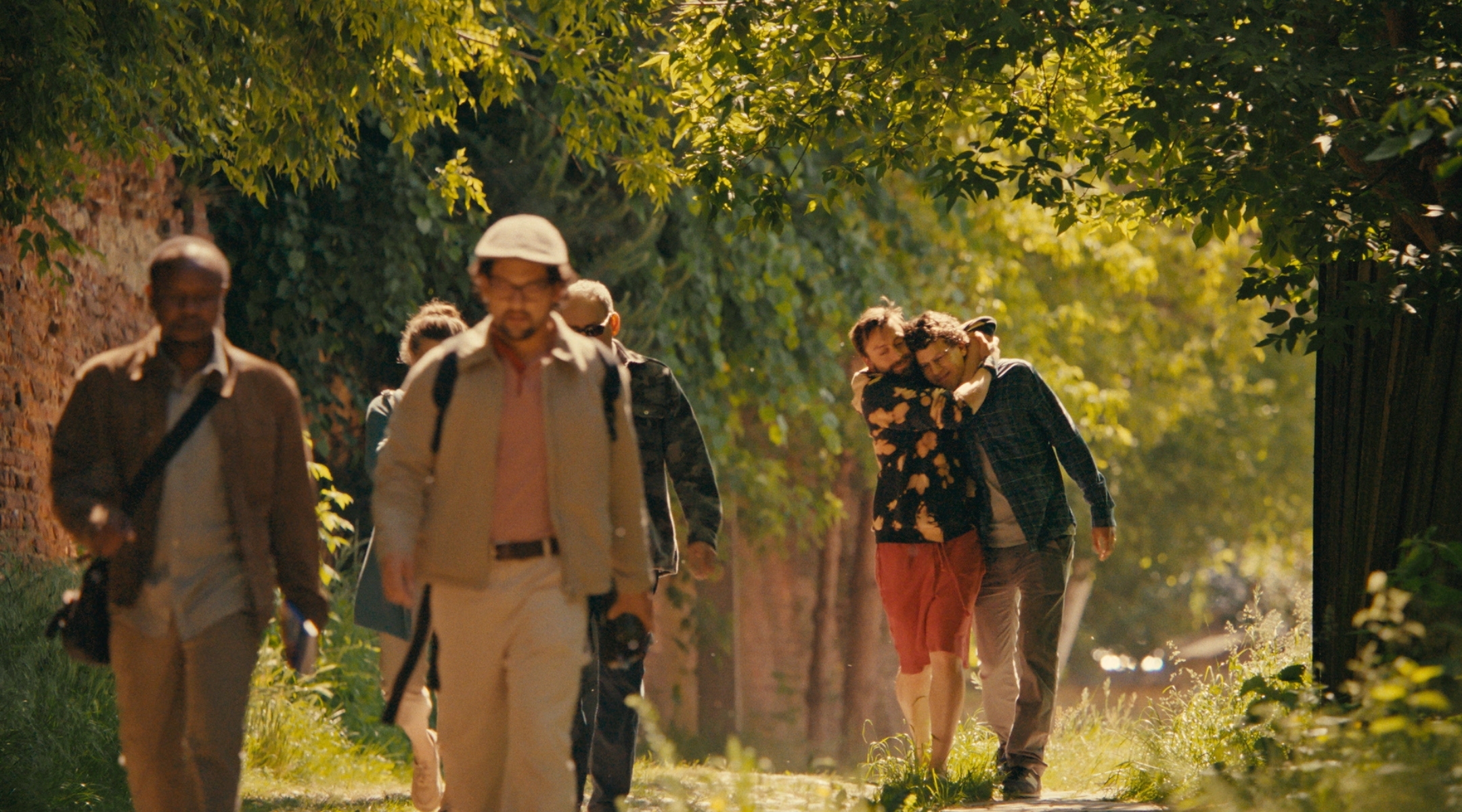Exclusive: Jesse Eisenberg discusses filming at Majdanek in ‘A Real Pain’
The writer-director spoke of the ‘incredible privilege’ in a behind the scenes clip

The tour group in A Real Pain wandering a graveyard in Poland. Courtesy of Searchlight PIctures
The Majdanek State Museum, the site of a German death camp where the Nazis murdered thousands, is used to saying no to filmmakers who want to shoot there — but they made an exception for Jesse Eisenberg.
“Majdanek, unlike all the other concentration camps, is preserved to look like how it looked at the time,” Eisenberg, the director, writer and star of A Real Pain, said in a behind-the -scenes extra for the film’s Dec. 31 digital release.
“I was told by our Polish producers that it would be near impossible to shoot at Majdanek,” Eisenberg said in the clip. “Majdanek gets a call all the time, ‘Can we shoot Auschwitz 1942 in your concentration camp?’ And they say, ‘No, we don’t want Nazis running around this place, this sacred place.’”
But, Eisenberg said, when the caretakers of the museum read the script, and realized that it was contemporary, showing a tour group walking through the grounds, they agreed.
“I think in my conversations with them, they realized that this movie is going to literally do what their mission is,” Eisenberg said.
Approximately 360,000 victims, mostly Jews, were murdered at Majdanek, the gas chambers of which remain largely intact.
“They gave our crew the tour that the characters take in the movie,” Eisenberg explained, “And I remember the crew was just crying. These are Poles, our crew.”
Eisenberg, who became a Polish citizen in November, called it an “incredible privilege” to film at the camp.
“It was just amazing to go through with the crew and what the characters in the movie are experiencing,” said Eisenberg, “while also, frankly, having weird conversations like, when we’re in like one of the gas chambers, ‘We need lighting here. Where do you think we can get that?’”
















